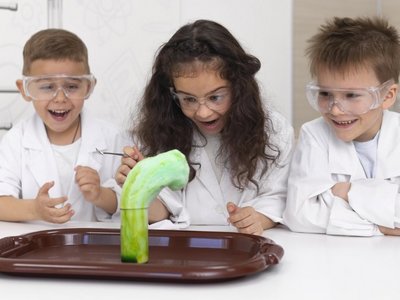

On December 14, 2022, the OeAD Center for Citizen Science organised a panel discussion. As part of the OeAD campaign #YoungScienceRocks "Living Science - Shaping the Future", the event aimed to give participants insights into how science can be taught in an exciting and interactive way.
The following experts were guests:
- Nicole Grüneis (Leiterin der Bildungs- & Kulturvermittlungsabteilung, Ars Electronica Center)
- Jacqueline Keintzel (ehemalige Sparkling-Science-Schülerin, derzeit am CERN tätig)
- Philipp Spitzer (Sparkling-Science-Projektleiter von "We talk about science", Universität Graz)
- Andrea Zsutty (Direktorin, ZOOM Kindermuseum)
The discussion moderated by Elke Ziegler (ORF) highlighted different aspects of science education. For example, the experts emphasised that children naturally ask many curious questions. Unfortunately, this is lost during the school career. Among the reasons they cited were the current evaluation system, in which things are either "right" or "wrong," and the fear of students to ask "wrong" questions in class. Here it is important to promote "letting questions bubble up" and to bring them to the surface even in adults. Because there is a lot inside us that has "fallen asleep" over the years. One possible approach to communicating knowledge and science is an artistic approach. The Ars Electronica Center and the ZOOM Children's Museum have had very good experiences with this. In ZOOM, for example, topics such as "death," "climate change" or "migration" can be communicated well and, in part, entirely without texts within the framework of sensory experience spaces. In this way, children can also experience and learn what science means. Diverse forms of presentation open up different ways of approaching science. "Relevance" plays an important role here. After all, the topic being communicated should be something that can be integrated into everyday life.
